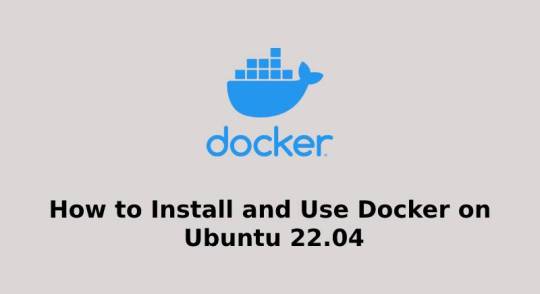Text
Exploring DevOps Services & phases in DevOps lifecycle
In the ever-evolving landscape of software development, DevOps has emerged as a crucial methodology to streamline workflows, enhance collaboration, and accelerate the delivery of high-quality applications. Companies in Canada are increasingly recognizing the value of DevOps services to stay competitive in today’s digital era. In this blog, we will explore three essential DevOps services: Integrated DevSecOps, DevOps Containerization, and VMware DevOps, along with relevant statistics and resources for further reading.
continue to reading:
#DevOps#DevOps services#Best DevOps services in Toronto#DevSecOps#DevOps containerization#Vmware devops#phases of devops lifecycle
1 note
·
View note
Text
youtube
The Best DevOps Development Team in India | Boost Your Business with Connect Infosoft
Please Like, Share, Subscribe, and Comment to us.
Our experts are pros at making DevOps work seamlessly for businesses big and small. From making things run smoother to saving time with automation, we've got the skills you need. Ready to level up your business?
#connectinfosofttechnologies#connectinfosoft#DevOps#DevOpsDevelopment#DevOpsService#DevOpsTeam#DevOpsSolutions#DevOpsCompany#DevOpsDeveloper#CloudComputing#CloudService#AgileDevOps#ContinuousIntegration#ContinuousDelivery#InfrastructureAsCode#Automation#Containerization#Microservices#CICD#DevSecOps#CloudNative#Kubernetes#Docker#AWS#Azure#GoogleCloud#Serverless#ITOps#TechOps#SoftwareDevelopment
2 notes
·
View notes
Text
How to Install and Use Docker on Ubuntu 22.04
Docker is an open-source containerization platform that allows developers to easily package and deploy applications in a portable and lightweight manner. In this tutorial, we will provide a step-by-step guide on how to install and use Docker on Ubuntu 22.04. Prerequisites Before you proceed, make sure you have Ubuntu 22.04 installed on your system and have a user account with sudo…

View On WordPress
#automation#cloud computing#command line#containerization#devops#Docker#linux#software development#Ubuntu#Ubuntu 22.04#virtualization
11 notes
·
View notes
Text
Harnessing Containerization in Web Development: A Path to Scalability
Explore the transformative impact of containerization in web development. This article delves into the benefits of containerization, microservices architecture, and how Docker for web apps facilitates scalable and efficient applications in today’s cloud-native environment.
#Containerization in Web Development#Microservices architecture#Benefits of containerization#Docker for web apps#Scalable web applications#DevOps practices#Cloud-native development
0 notes
Text

Elevate your DevOps skills with our comprehensive Docker courses. From containerization fundamentals to advanced orchestration, our courses provide the knowledge needed to excel in Docker and container technologies. https://www.dclessons.com/category/courses/docker
#Docker#Containerization#TechEducation#DockerCourses#CloudComputing#DevOps#Kubernetes#Microservices#ITTraining
0 notes
Text
Maximize Efficiency with Expert Docker Consulting Services

In the fast-paced world of software development, containerization has become a game-changer, offering unprecedented flexibility, scalability, and consistency. Docker, the leading containerization platform, allows developers to package applications and their dependencies into standardized units for seamless development, testing, and deployment across different environments. However, to fully harness Docker's potential, businesses often require specialized expertise. This is where Docker consulting services can provide invaluable support, helping organizations optimize their container strategies and accelerate their journey towards a more efficient DevOps ecosystem.
What is Docker?
Docker is an open-source platform designed to automate the deployment of applications inside lightweight, portable containers. These containers encapsulate everything needed to run an application—code, runtime, libraries, and settings—ensuring that the software behaves the same regardless of where it is executed. This eliminates the classic “it works on my machine” problem and streamlines the development workflow, making Docker an essential tool for modern software development.
Why Invest in Docker Consulting Services?
Customized Containerization Strategies Implementing Docker isn’t just about spinning up containers; it requires a strategic approach to ensure that your architecture is optimized for performance, security, and scalability. Docker consulting services provide tailored strategies that align with your business objectives, whether it's modernizing legacy applications, migrating to microservices, or streamlining your CI/CD pipelines.
Expert Guidance and Best Practices Docker offers powerful capabilities, but without proper guidance, organizations can face challenges like security vulnerabilities, inefficient resource utilization, and complex network configurations. Expert consultants bring a wealth of knowledge in Docker best practices, from container orchestration with Kubernetes to securing Docker images and managing container lifecycles, ensuring that your setup is robust and reliable.
Seamless Integration with DevOps Pipelines Docker plays a critical role in modern DevOps, enabling continuous integration and continuous deployment (CI/CD) processes. Consulting services help integrate Docker into your existing DevOps workflows, automating everything from code testing to application deployment. This reduces time to market and increases the efficiency of your development teams.
Cost Optimization While Docker can lead to significant cost savings, especially in terms of infrastructure, improper management can lead to resource sprawl and hidden costs. Consultants help optimize your Docker setup by right-sizing containers, implementing automated scaling policies, and leveraging Docker’s resource management tools to keep your operations cost-effective.
Training and Skill Development A key component of successful Docker adoption is having a team that understands how to use it effectively. Docker consulting services often include training and upskilling for your in-house developers and operations teams, equipping them with the necessary skills to manage and optimize your containerized environments.
Choosing the Right Docker Consulting Partner
Choosing the right consulting partner can make a significant difference in the success of your Docker initiatives. Look for a partner with extensive experience in Docker and container orchestration, as well as a deep understanding of your industry’s specific challenges. At Feathersoft Inc Solution, we specialize in providing Docker consulting services that are tailored to your unique needs. Our team of experts works closely with your organization to design, implement, and optimize your container strategy, helping you achieve your goals faster and more efficiently.
Conclusion
Docker consulting services can be the catalyst your business needs to fully realize the benefits of containerization. By leveraging expert guidance, tailored solutions, and ongoing support, you can transform your software development and deployment processes, achieving greater efficiency, scalability, and cost savings. Whether you’re new to Docker or looking to enhance your existing setup, the right consulting partner can help you navigate the complexities of containerization and unlock its full potential.
#Docker#DevOps#Containerization#DockerConsulting#CloudComputing#Kubernetes#Microservices#SoftwareDevelopment#CI/CD#ITConsulting#CloudNative#Technology#CloudServices#DigitalTransformation
0 notes
Text
Unlock the Power of Azure Container Registry for Flawless App Deployments
Unlock the full potential of your cloud-native deployments with Azure Container Registry and Azure Container Apps! Dive into our latest blog to learn how to streamline, secure, and scale your containerized applications with ease. Don’t miss out—read it no
In our previous blog, we explored the basics of Azure Container Apps and how they can transform your cloud-native application deployments. Now, it’s time to dig a little deeper into one of the key components that make this magic possible: Azure Container Registry (ACR). Whether you’re a developer looking to streamline your deployment process or an IT professional tasked with managing…
#ApplicationDeployment#Azure#AzureContainerApps#AzureContainerRegistry#CloudComputing#CloudNative#ContainerDeployment#containerization#ContainerSecurity#DevOps#DevProfessionals#Docker#ITManagement#SoftwareDevelopment#TechTutorial
0 notes
Video
youtube
Fundamentals of Docker for Beginners - Learn Docker from Scratch - Saifosys.com
#dockerforbeginners#dockertutorial#containerization#devops#DockerBasics#DockerTraining#saifosys#CloudComputing#Virtualization#LearnDocker#DockerContainers#DockerImages#DockerVolumes#DockerHub#Dockerfile
0 notes
Text
Django and Docker: Containerizing Applications
Containerizing Django Applications with Docker: A Comprehensive Guide
Introduction Docker is a powerful tool that allows developers to create, deploy, and run applications in containers. Containers are lightweight, portable, and consistent environments that include everything needed to run an application, from the operating system to the code, runtime, libraries, and dependencies. This article will guide you through the process of containerizing a Django…
#containerizing Django#DevOps practices#Django Docker integration#Docker Compose#Docker Django setup#Python web development
0 notes
Text
Did you know? Docker, a leading containerization platform, revolutionizes software development by providing a consistent environment for applications to run across different computing environments, ensuring seamless deployment and scalability. . . ➡️For more information, please visit our website:- https://zoofinc.com/ ➡Your Success Story Begins Here. Let's Grow Your Business with us! 👉Do not forget to share with someone whom it is needed. 👉Let us know your opinion in the comment down below 👉Follow @Zoof Software Solutions for more information . . ✔️Feel free to ask any query at [email protected] ✔️For more detail visit: https://zoof.co.in/ . . .
#Docker#Containerization#SoftwareDevelopment#DevOps#Consistency#Scalability#Deployment#DeveloperTools#ComputingEnvironment#ContainerPlatform#devopsservices#webappsoftwaredevelopment#bestITservice#ZoofUnitedStates#ZoofIndia#SoftwareCompany#StartUpTechnology#mobilefriendlywebsite#Resourceoutsourcing#TechnologyConsulting#GrowBusiness#WebsiteDevelopment#SoftwareConsultant#ZoofSoftwareSolutions#zoof#zoofinc#MobileAppDevelopment#AwardWinningCompany#BestSoftwareCompany#digitalmarketing
1 note
·
View note
Text
#devops#devops lifecycle#DevOps services#Best DevOps services in Toronto#DevSecOps#DevOps containerization
1 note
·
View note
Text
#Containerization#LinuxTechnology#Namespaces#ControlGroups#SELinux#ResourceManagement#SecurityEnhancement#AppDeployment#DigitalTransformation#SystemAdministration#EfficientApplications#TechInnovation#DevOps#LinuxContainers#ITInfrastructure
0 notes
Text
Why do hackers love Linux? The 7 deeply unsettling realities - CyberTalk
New Post has been published on https://thedigitalinsider.com/why-do-hackers-love-linux-the-7-deeply-unsettling-realities-cybertalk/
Why do hackers love Linux? The 7 deeply unsettling realities - CyberTalk


EXECUTIVE SUMMARY:
Why do hackers use Linux so extensively? This open-source operating system (OS), which some see as more stable and reliable than any other operating system in existence, has become a favored playground for cyber criminals.
Although Linux claims only a small percentage of the OS market share, major telecommunications networks, science-based organizations (particularly those running supercomputers), national e-voting systems and global stock exchanges run on Linux. National Departments of Defense are also known for their reliance on Linux.
In this article, we unpack why Linux has become an irresistible target for motivated cyber criminals. You’ll gain new insights designed to help inform (and transform) your security processes and system development. Keep reading to learn more:
Why do hackers love Linux? 7 unsettling realities
1. The open-source advantage. Linux is open-source software. The source code of the Linux project is available to the general public. Anyone can download the source code for free, modify it for their own use and even create their own version of Linux. This can be good, but it also comes with challenges…
While the open-source model allows for collaboration and rapid innovation, it also exposes the source code to malicious actors, who may scrutinize it for vulnerabilities. Malicious persons can then exploit weaknesses with relative ease.
2. Ubiquity and versatility. Linux powers a diverse array of systems and applications, from IoT devices, to desktops, to smartphones. This makes Linux an attractive target for hackers who want to maximize their impact. When compromising a Linux system, cyber criminals can potentially gain access to a wide network of interconnected devices and services, thereby enabling them to amplify the effects of their activities.
3. Kernel vulnerabilities. Why do hackers use Linux to gain elevated privileges? It’s simple. Despite a strong reputation for security, the Linux kernel, the core element responsible for managing system resources, has been dogged by vulnerabilities over the years. High profile bugs have effectively provided cyber criminals with opportunities to unduly gain elevated privileges.
4. Supply chain attacks. Why do hackers use Linux ecosystems for widespread disruption? In the era of containerization and DevOps practices, supply chain attacks targeting Linux ecosystems have become a serious concern. By compromising a widely used package or container image, cyber criminals can inject malicious code that propagates across numerous systems, resulting in widespread disruption and data breaches.
5. Cryptocurrency mining. Linux’s efficiency and scalability render it a preferred platform for cryptocurrency mining operations; both those that are legitimate and those that are illicit. Cyber criminals adeptly leverage Linux’s systems to harness the extensive computing power for mining, evading detection all the while.
6. Internet of things. The proliferation of Linux-based IoT devices has created an expansive attack surface for cyber criminals. Many IoT devices are bereft of proper security, making them easy targets for hackers seeking entry points into networks. Hackers use Linux to establish a foothold, via IoT, within corporate networks, enabling them to eventually deploy more sophisticated network-based attacks.
7. Technical capabilities. Why do hackers use Linux tools for advanced exploits? Linux’s command-line interface and powerful tools (like Bash and Python) are a force-multiplier. Understanding the intricacies of Linux enables elite cyber criminals to craft sophisticated exploits that sow more chaos, lead to more damage and turn up higher yields than attacks leveraging other operating systems.
For more of the latest cyber security insights, please see CyberTalk.org’s past coverage. Lastly, subscribe to the CyberTalk.org newsletter for timely insights, cutting-edge analyses and more, delivered straight to your inbox each week.
#analyses#applications#Article#Attack surface#bugs#chaos#code#Collaboration#command#command-line interface#computing#container#container image#containerization#craft#cryptocurrency#cutting#cyber#cyber attack#cyber criminals#cyber security#cyber threat#cybersecurity#data#Data Breaches#defense#detection#development#devices#Devops
1 note
·
View note
Text
youtube
A walkthrough of the world of Docker, and specifically how Docker Compose can be used to run a sample container locally.
0 notes
Text

Delve into Docker containers with specialized courses designed for network administrators. Master containerization technology for efficient application deployment and management. https://www.dclessons.com/category/courses/docker
#Docker#Containerization#DevOps#ITTraining#CloudComputing#SoftwareDevelopment#DockerCourses#Microservices#ContinuousIntegration
0 notes
Text
Why Containerization is Crucial for Successful DevOps Implementation?

Understand the reasons why containerization is important for seamless DevOps implementation, its business scenario implications, and the benefits it offers to businesses.
0 notes